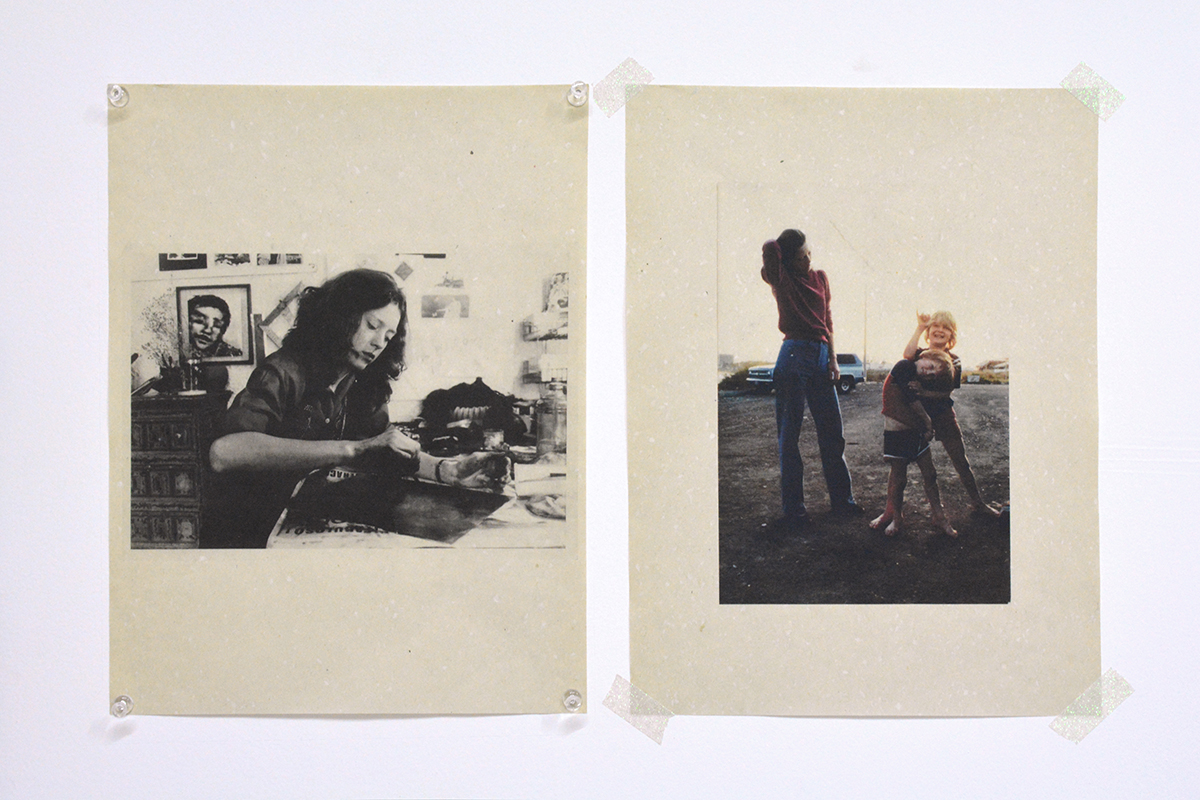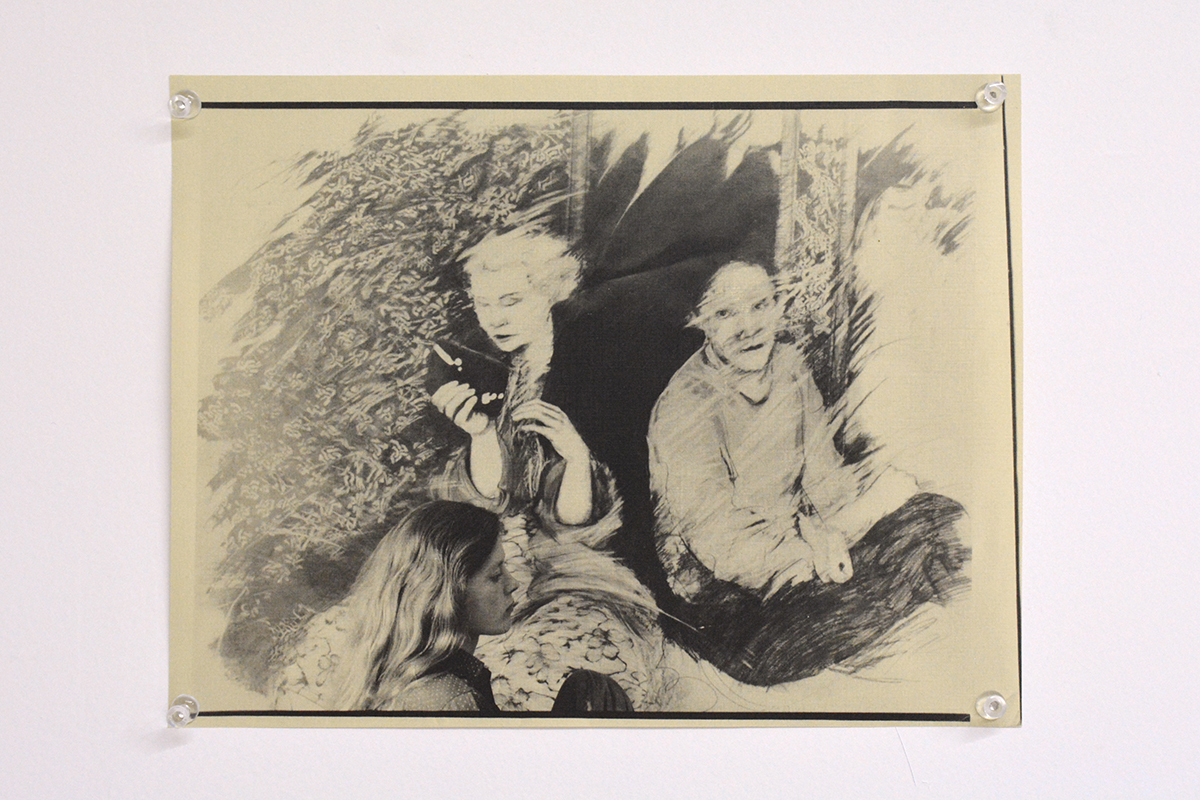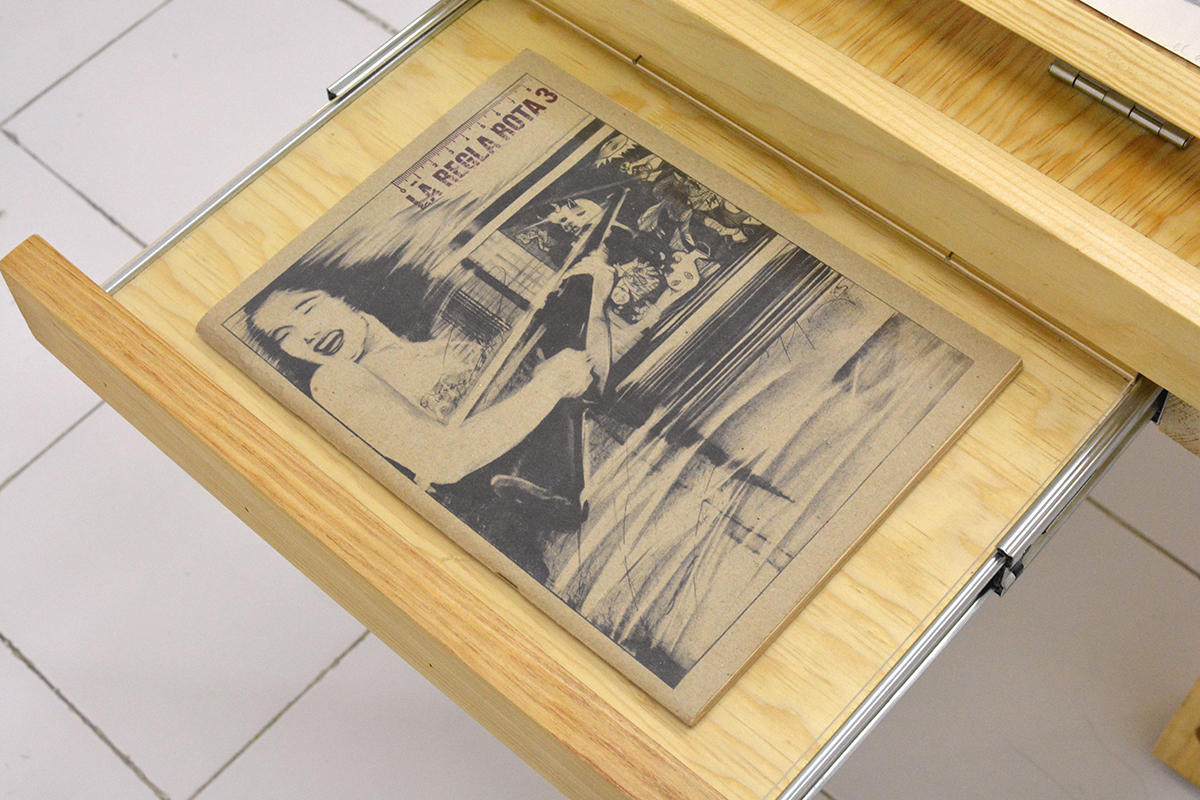Cosas que pasan (Things That Happen) at Biquini Wax EPS, Mexico City, tells a story of Rippey’s creative life seen through a feminist lens, unassuming yet assured and well-crafted

Carla Rippey has led many lives. She had already studied at La Sorbonne by the time she arrived, aged nineteen, at the SUNY Old Westbury, where she wrote a thesis on art and politics supervised by artist and critic Luis Camnitzer. A little later, in Boston, she learned printing at an alternative press, lived in a women’s commune and created silkscreened posters for feminist events. In 1972 she found herself a visiting student in Chile where she ran with the Revolutionary Left Movement and was beaten by military cops during the coup against Salvador Allende. She fled to Mexico City a year later and was involved in the Infrarrealismo movement with Roberto Bolaño – Catalina O’Hara from his novel The Savage Detectives (1998) is based on her – and with Peyote y la Compañía (Peyote and the Company), one of the many art groups formed during the politically engaged and collectively organised period of Los Grupos (The Groups), between 1977 and 1982. More recently, in 2013, she became the first woman to direct ‘La Esmeralda’, the influential national public art school, in Mexico City.

Cosas que pasan (Things That Happen) exhibits the material remains of some of these lives, from a period between 1970 and 1990. The exhibition features facsimiles, scans of sketches, poems written on margins and casual snapshots hung with glittery scotch tape: a story of her creative life seen through a feminist lens, unassuming yet assured and well-crafted. Rippey often created by erasing: ¿Pienso con más esfuerzo o me esfuerzo por no pensar? (Am I Thinking Harder or Hardly Thinking?, 1978) and Thoughtless (1978) are both despintados (‘unpainteds’), works in which she delicately sandpapered the ink off magazine pages, leaving a pair of eyes to float on white nothingness over well-dressed shoulders and leather-gloved hands clenching the space where the head should be. She also made realistic drawings in graphite smoothed over with erasers, the lines blurry and pictorial. In her series of postcards Santas y Pecadoras (Saints and Sinners, 1973) she drew old-timey photos of women charged with prostitution, making them appear uncanny, dreamlike: a young woman sticking her tongue out next to a stiff military handshake, another looking angelic while sleeping in a trunk – hopefully not dead. Rippey’s archive is also intimate; on loose sheets of paper she writes beautifully of the emotions elicited by her partner (the artist Adolfo Patiño) and also of dissatisfaction and of feeling underappreciated (elsewhere she scratches off the face of someone who crossed her in a group photo). A highlight: A thick wooden frame holding a drawing by Rippey’s son, made on an etching press, with the words: ‘My mom makes prints because she likes art and so we can eat’.

Rippey was often the lone woman in the Mexico City art scenes she frequented, and her work is sometimes brought up as a side note to that of some of the male artists who surrounded her, like Patiño or Bolaño. This show is the first offering from the workshop-seminar Depatriarchalizing the Archives, hosted at Biquini Wax EPS, which seeks to rebalance art history through research and – refreshingly – nuance: how might one bring to light the realities of the skewed power balance in artistic-romantic partnerships, without minimising one character’s experience or demonising others? This show offers an answer by staying close to Rippey’s voice, to her truth, laid out in the affections and emotions of her memories.
Carla Rippey, Cosas que pasan, was on view at Biquini Wax EPS, Mexico City, 7 February – 31 March 2020.